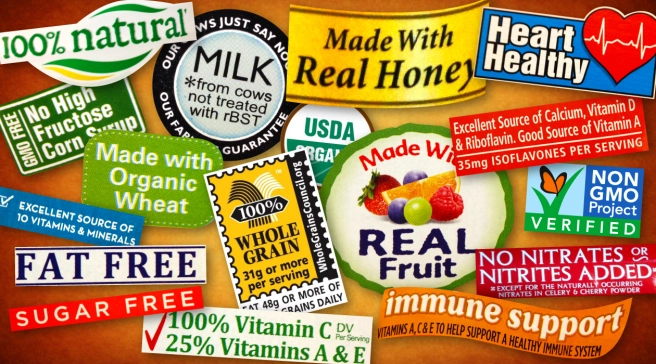Since the dawn of commerce, people have mislabeled and told half-truths about their products in order to get them sold. Healthwashing is one of the more prominent forms this occurs in.
Healthwashing is the practice of branding a product as having health benefits without actually delivering the supposed benefit. This prevents consumers from getting the intended effect or recognizing the marginal benefits from a product.
Common signs of healthwashing can be boiled down to a general emphasis on statistics or nutrients. These benefits can exist, but are typically negligible or misleading. A sticker stating a product is fat-free may be ignoring the fat substitutes or alternatives used in the product, while another may advertise the benefits of a specific vitamin but lack enough of the vitamin to have an effect.
Many of the tricks used are fairly simple — promote one aspect of the product’s development or ingredient as something special or unique. Unfortunately, many consumers do not have the required prior knowledge to spot these tricks.
Forms of this branding technique appear regularly. One form, as mentioned previously, is emphasizing a supposed health benefit without actually delivering. For example, companies may label a food product as having vegetables, only to have used vegetable powder instead. Another method is to omit how much the product helps the consumer. A can of soup may claim to have carrots, which can improve your eyesight, but it has so few carrots that the health benefit is marginal or not even there.
Some past examples of healthwashing include Annie’s One Pot Pasta Mac with Hidden Veggies, which uses vegetable powder instead of actual vegetables, thus lacking many nutrients. Similarly, Cauliflower Puffs claims to give probiotics but lacks enough to make a substantial difference. Collagen Popcorn uses collagen but only provides marginal amounts of protein.
However, not all healthwashed products are inherently bad, such as organic foods. Although they may lack health benefits, some forms of healthwashing are beneficial for the environment. The most prominent example of this is organic products. Despite lacking health benefits, organic ingredients often promote higher biodiversity, improve soil quality, and reduce pesticide usage.
Healthwashed products do not break any consumer laws as well. In fact, no healthwashed product will make a claim without having some basis in truth due to laws preventing misadvertising. These products may not be the most ethical, but they do not break any branding laws.
Additionally, some arguments in favor of healthwashing revolve around the psychology of buying these products. Buying products that are thought to be healthy can help build a consumer’s confidence.
By encouraging them to continue purchasing healthy products, consumers become healthier over time. These products can also help consumers be more careful about what they buy and thus avoid being scammed by similar products.
Although it may seem tedious, the benefits of checking labels and doing research are worth it — especially considering that this research can help one learn new healthy options and become more aware of the products one buys. The time spent researching can create great benefits in health and help buyers become significantly more resistant to healthwashing.







